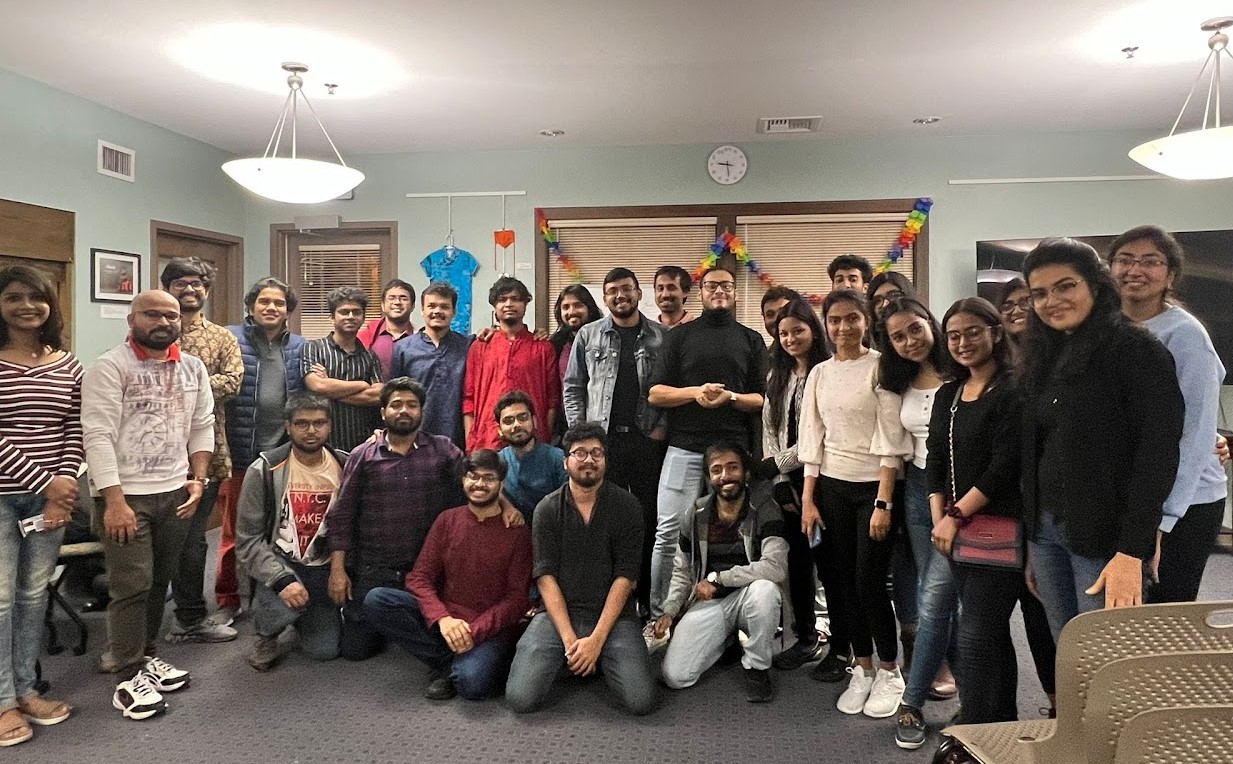This Sunday, campus and community will have the opportunity to come together in celebration of Bengali New Year. The event will be hosted by the newly reestablished Bengali Students Organization (BSO), along with the East Central Illinois Bengali Association (ECIBA) and Bangladeshi Students Association (BSA) at 5 p.m. at Lincoln Hall. The University of Illinois brings in students from all over the world, and as a community, we get to reap the benefits of that through events such as this one, as student-centered cultural organizations invite us to be a part of a small piece of their lived experiences.
I spoke with Sourya Sengupta, the president of the BSO, about his background, the organization he leads, and the event coming up. Sengupta came to the U of I in 2021 to pursue a PhD in Electrical and Computer Engineering. He’s originally from the state of West Bengali in India, which is on the eastern side of the country, sharing a border, language, and many cultural traditions with Bangladesh. For those unfamiliar with the diversity of culture and language in India (I was one of those), there are 16 official languages, of which Bengali is the second most spoken, but according to Sengupta, there are way more than just 16. “One of the interesting parts of India is that you can go a few hundred miles and see people that are completely different, and I probably don’t understand the language…that diversity is kind of unique, and also unique to the Bengal part because even inside of it there are many small dialects.”
When he arrived on campus, the Bengali Student Organization had been dormant for a couple of years, with most former members having graduated. But he found a West Bengali community here, and set about getting an official organization back on the list of Registered Student Organizations. Says Sengupta, “we took some workshops from the Student Organization Center, and reactivated the organization last fall.” Though it was founded by a group of students from West Bengali, they’ve now been able to connect with others who were born and raised in the U.S., but with West Bengali roots, bringing an entirely different cultural framework to the organization. The group has a nickname for themselves, “Abol Tabol”, which comes from a poem written by Bengali poet Sukumar Roy. It means “random, funny, and crazy stuff.”
Up to this point, they’ve kept their events relatively small, with meet and greets and other social gatherings. The upcoming new year celebration will be the biggest one they’ve planned, and the first that’s open to the entire campus and community. They’ve been able to plan it with funding help from the Student Organization Center.
Bengali New Year, or Pohela Boishakh, begins on the 14th or 15th of April. Sengupta says It’s celebrated mostly with cultural programming, specifically music, dance, and poetry. He describes how in the Bengal region, there will be small stages set up for performances, as well as celebrations in the streets where people are singing and dancing. The processions start early in the morning. A central figure in new year celebrations is Rabindranath Tagore, a poet, writer, and artist from West Bengal who became the first person from Asia to win the Nobel Prize in literature. In the home, people will prepare special food.
The upcoming celebration will include pieces of all of this. Says Sengupta, “there will be a lot of dances. There are some specific dance forms of the India-subcontinent that performers will do with Bengali songs. We have a long tradition of poetry, so there will be some who write their own poems and recite them. We are planning to have a small trivia of different information from our culture. I hope it will be a lot of fun.” Of course there will also be food. The Bloomington restaurant Bloom Bawarchi will be there, as well as Sukhadia Sweets and Snacks from Chicago, both offering food at discounted prices.
One of the goals of the event is to “encourage cross-cultural communication and learning.” Sengupta explains how with the many cultural organizations on campus, conversations tend to happen within them rather than between them. “It should be people from different centers and communities coming together.” The Bengali New Year Celebration is an opportunity for that.
The event is free, with food available for purchase. It’s a family-friendly event, as Sengupta notes there will even be some kids performing. A lot of the celebration will not be in English, though music and dance have a way of transcending language barriers. You can find details and updates on the BSO Facebook page or Instagram.








